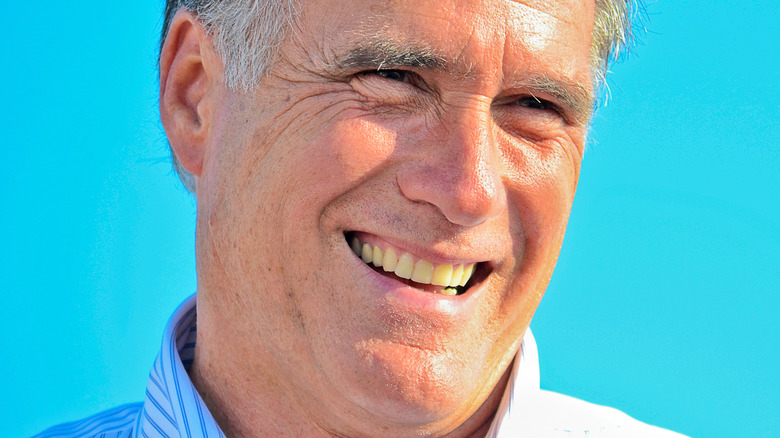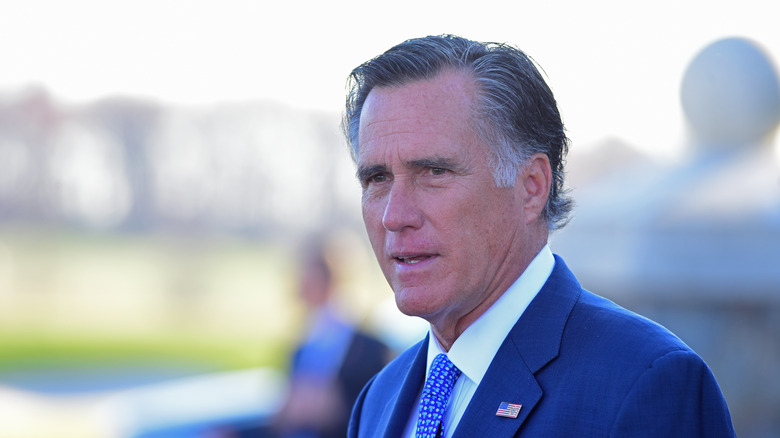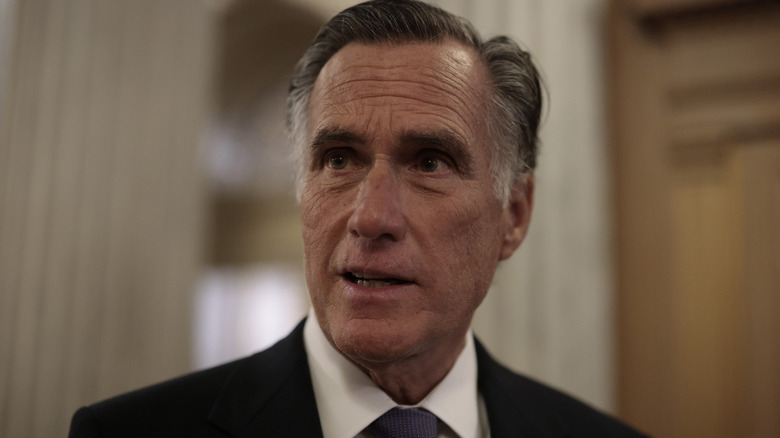The Real Reason Mitt Romney Didn't Make A Third Run At President
While Mitt Romney may be best remembered for his run for president in 2012, his political career started long before that (via Biography). He started his time in the political sphere with big intentions, running to replace Democrat Ted Kennedy as senator in Massachusetts.
Unable to beat Kennedy for a seat in Congress, he set his sights on becoming the state's governor. He won that race in 2002, took office in 2003, and implemented centrist views in a state that votes blue more often than not. At the time, Romney had to play the middle ground in the Republican party, which would change once he ran for president.
Romney's name was first heard in the national political circuit during the 2008 presidential election. Though he lost his party's nomination that year to John McCain and his running mate, Sarah Palin, he would run a more successful campaign in 2012 (via ABC News).
Romney's first semi-successful presidential run came in 2012
During the 2012 election cycle, Mitt Romney became the Republican nominee against then Democratic hopeful, Barack Obama. From the beginning, Romney faced backlash from his own party (via The European Times). Many cited his beliefs while governor of a typically blue state, Massachusetts, claiming he was a fake conservative. He was also a practicing Mormon, which was not seen in American politics. The Republican Party still nominated Romney as their candidate to take on Obama, but it didn't seem that there was unity behind his nomination.
Of course, Obama won the election, and though Romney ran a campaign that polled strongly against him, a generation gap in voters was his demise (via Pew Research). Millennials were passionate about reelecting Obama to a second term, and Romney polled poorly amongst the youngest generations and thrived within the oldest, but it wasn't enough to bring him to victory.
When the 2016 election came around, Romney and Donald Trump were at war, and many thought that Romney would make another run for president against him. However, he chose not to, and now we know why.
The numbers were against him in 2016
Donald Trump changed Republican politics as we knew them amid his rise to power (via AP News). During his 2016 campaign, Trump ran on many promises, one of which was "draining the swamp." This idea targeted the political establishment and made voters view more traditional Republican candidates as part of that murky water.
This change in view towards the establishment would be the nail in Mitt Romney's presidential campaign's coffin. For a candidate who struggled with nontraditional voters during his 2012 run, he had no real shot of grabbing the Republican nominee from Trump.
The numbers didn't lie. According to The Washington Post, Romney was polling poorly in Iowa, with 45% of Republican voters stating they would not like to see the party's most recent presidential candidate run again. This is not the typical response from voters to their previous primary winner — it was clear that Romney would likely not stand a chance.
Instead, Romney set his eyes on a run at the Senate again, this time running on behalf of Utah in 2018 (via Deseret News). He won and is currently working in Congress.


